Malott Innovation Award winners
The Malott Innovation Awards are the culmination of ME463, Purdue's capstone class for seniors in Mechanical Engineering. Teams of students work closely with faculty members and industry partners to create prototype products, continually refining and improving them using the knowledge from their engineering courses over the last four years. At the end of the semester, the students present their final prototypes to a panel of Purdue ME alumni who work in various industries; this panel selects the award winning teams.
Because this semester was interrupted by the COVID-19 pandemic, teams completed their collaborations online. They also presented to the panel of judges through Powerpoint. This semester's teams came up with numerous innovative ideas, from a smart tool for laparoscopic surgery, to a re-imagined refrigerator for people in wheelchairs, to an origami-inspired mattress topper.
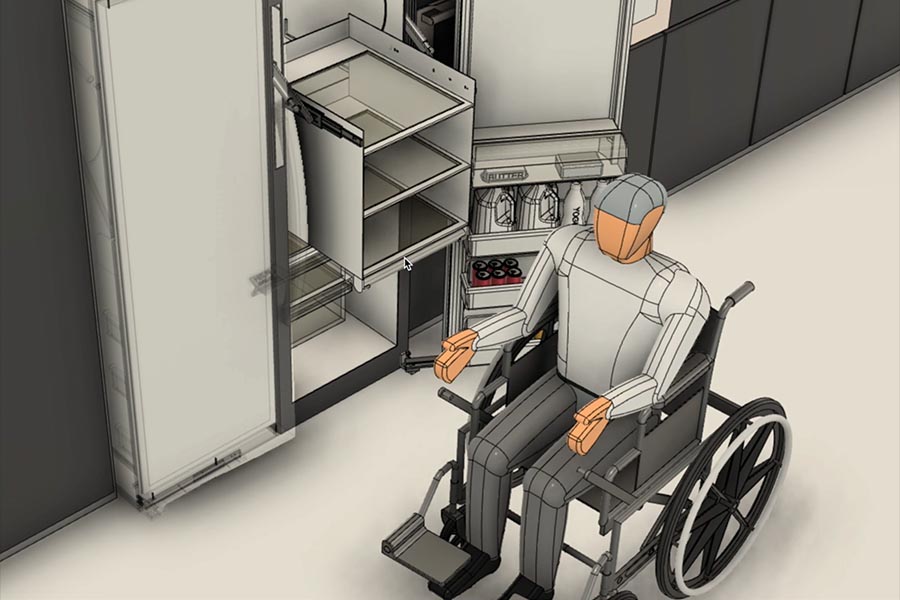
1st Place (tie): Coolr (Team Access Ability): Aditya Mishra, Shaaz Kantawala, JayLynn Yeager, Anna Brandt, Jacob Peterson. At its inception, our team aimed to develop a solution for a real problem. We believe that consulting with potential users of our product was the only way to proceed. Starting with our teammate JayLynn’s anecdotal stories, we then interviewed many wheelchair users to focus on the household refrigerator. Acknowledging the market (6-15% of the US population), we hoped to create a better design for all users, including those who are disabled. Rather than redesigning the refrigerator, we learned that our role was to design a user experience that was seamless for those in wheelchairs. Watching our friend Joe open a fridge led us to solving three key issues: opening the door; the swing of the door; and reaching the top, back, and bottom of each shelf. Our solution was then iteratively developed in correspondence with our users and home appliance professionals to keep the project useful and valuable.
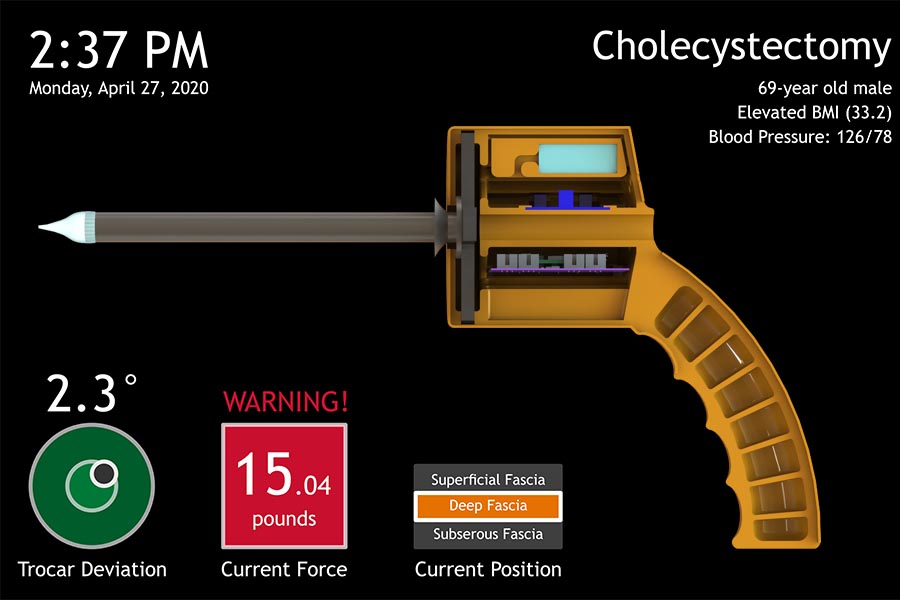
1st Place (tie): Smart Tool for First Access in Laparoscopic Procedures (Team First Access): Brian Acosta, Justin Brolley, Chiranth Kishore, Naveed Riaziat, Marc Turenne. There are one million laparoscopic procedures each year in the United States, and 5% result in first access complications. The intent of our project was to deliver a developmental smart tool to Intuitive. This device will be further optimized to assist surgeons in gaining first access to the abdominal cavity and reduce the risk of injury to patients during laparoscopic surgery. Our vision was to surpass customers’ functionality, usability, and safety requirements through a sustainable and reusable surgical tool that establishes industry leadership in innovative first entry technology. The future state of our project is to use smart mechanisms to reduce surgeon fatigue, improve patient outcomes, and increase minimally-invasive surgery adoption by providing an intuitive, cost-competitive medical device to be used in all laparoscopic procedures. Our virtual prototype will highlight key mechanical and electrical components, with a supplemental guide-for-assembly and formal test plan.
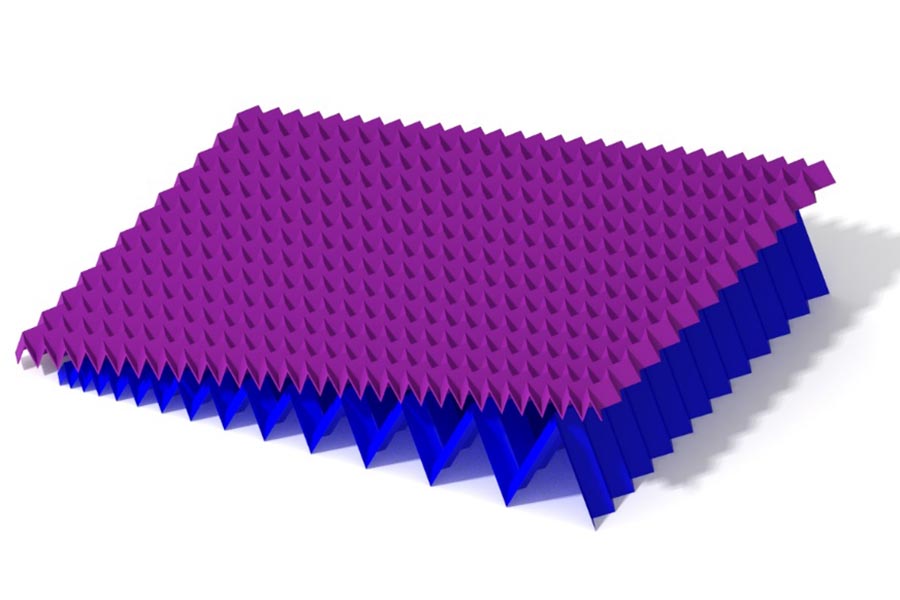
3rd Place: Sleep Aid Ready for Airplanes (Team SARA): Team Members: Liza Russell, Julia Klaben, Seth Emond, Nicholas Trevino, Jacob Danek. Individuals with health conditions, such as sleep apnea or acid reflux, require an elevated sleep position. Current market solutions for these conditions do not easily travel; they are generally too large and bulky to fit in luggage or difficult to install in a hotel room. SARA has created a product that solves this problem and fills the market gap. The 36”x31”x7.6”, 10° SARA Origami Sleep-Wedge collapses to easily fit within a standard carry-on suitcase, leaving ample room for other travel necessities. Origami structures (wedge and topper) were chosen because of their high strength when deployed and minimalistic size when collapsed. The wedge safely supports the 99th percentile male, while the topper provides a soft comfortable cushion made of silicone. The SARA Sleep-Wedge is comfortable, easy to transport, and quick to install, all while providing the end users with the ability to address their health conditions while traveling, either for business or pleasure.
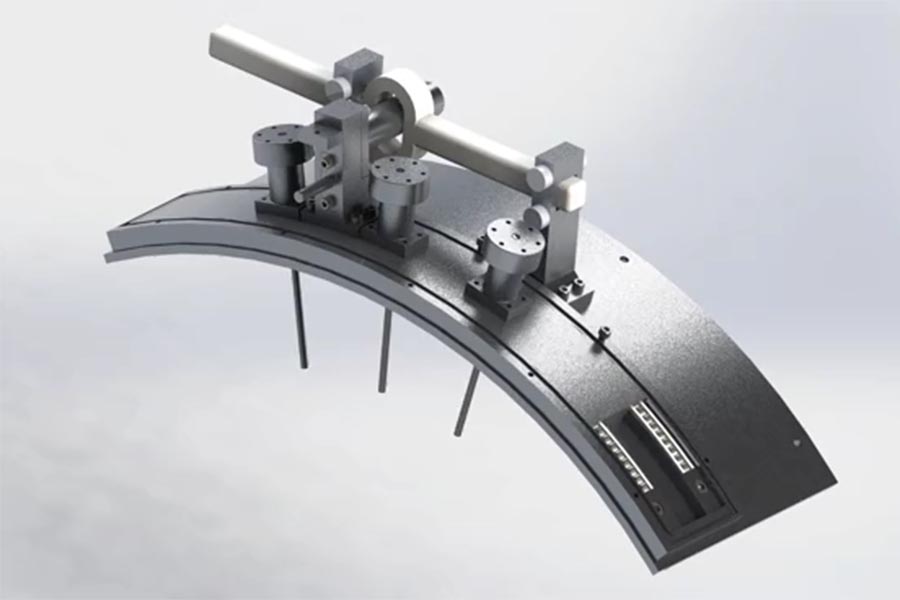
Best Engineering Prize: Annular Wind Tunnel Traversing System (Team Steam): Jinchi Zhang, Zhiyang Wen, Dengfeng Sun, Zihao Xu, Zhengwei Chen. Traversing systems are widely used in aeroengine design, aerodynamics and other areas. However, current solutions for sealing the annular traversing system are far from satisfying. Our project is aimed to provide reliable solutions: better airproof performance, new annular motion mechanism, as well as accurate measurement for motions in three directions (annular motion, axial rotation and motion in depth).
See the presentations for all 12 finalists!
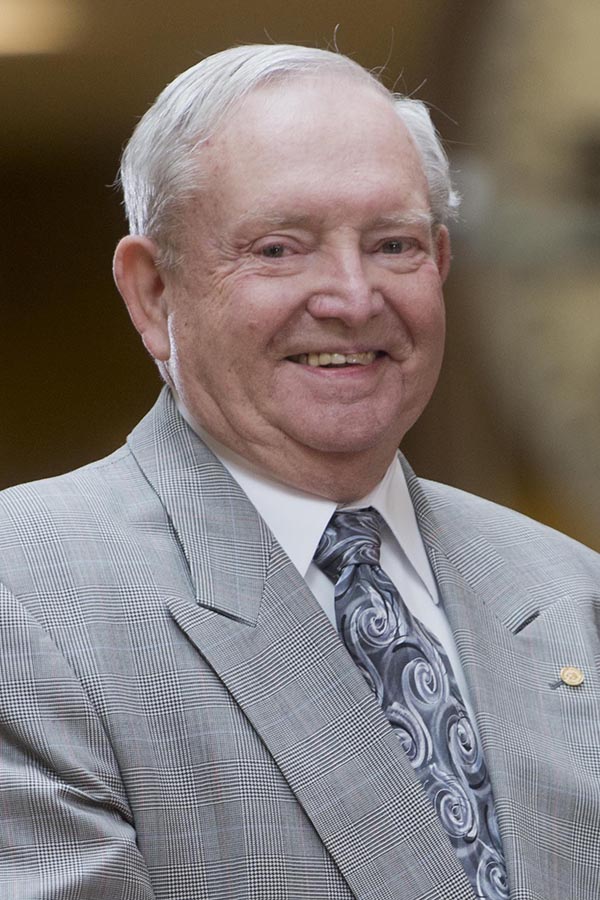 About the Malott Innovation Awards
About the Malott Innovation Awards
The Malott Innovation Awards are supported by an endowment created in 2007 by Thomas J. Malott (BSME '62, HDR '02), to foster an innovation culture among Purdue Mechanical Engineering students. Malott is the former president, CEO and director of Siemens Energy and Automation. His career included executive positions with Parker-Hannifin and the Ransburg Corp., as well as serving on several corporate boards. He was an inaugural member of the Purdue Foundation Development Council and was awarded the Outstanding Mechanical Engineer and Distinguished Engineering Alumnus awards in 1991 from the university.
Writer: Jared Pike, jaredpike@purdue.edu, 765-496-0374
Source: Greg Jensen, jensen23@purdue.edu, 765-496-0214
